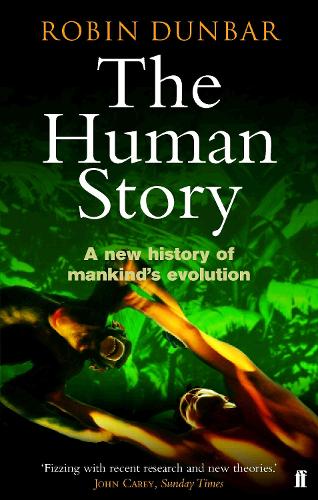
The Human Story
(Paperback, Main)
Publishing Details
The Human Story
By (Author) Professor Robin Dunbar
Faber & Faber
Faber & Faber
1st August 2005
19th May 2005
Main
United Kingdom
Classifications
General
Non Fiction
Anthropology
Human biology
Evolution / Evolutionary biology
599.938
Physical Properties
Paperback
224
Width 125mm, Height 200mm, Spine 10mm
180g
Description
A wonderfully accessible, up-to-the-minute account of human evolution by 'one of the most respected evolutionary psychologists in Britain'(Guardian). Of the dozen or so hominid species once in existence, why are we the only one to have survived What is it that sets us so firmly apart from all the other creatures with whom we share the planet How and when did that separation come about
Reviews
"'Fizzing with recent research and new theories.' Sunday Times A wonderfully readable, up-to-the-minute account of human evolution that has completely superseded The Naked Ape, by 'one of the most respected evolutionary psychologists in Britain.' Guardian 'Deserves its place at the high table [of popular science]... This important, accessible book also leaves us with a sobering message: we might be different, but that doesn't make us better.' Jack magazine 'Punchy and provocative... This isn't a book of facts and figures; it is one of ideas. Dunbar certainly delivers, whether it is about why we have religion, how evolving language went through a musical phase, or how we avoid having sex with people by making them laugh.' New Scientist 'Should be required reading for all humans' Herald"
Author Bio
Robin Dunbar is Professor of Evolutionary Psychology at the University of Liverpool and has held fellowships at the Universities of Cambridge and Stockholm. He has been praised for 'writing that is dizzyingly multi-disciplinary but shows great generosity to the ordinary reader' (Guardian). His books include The Trouble with Science (1995), 'an eloquent riposte to the anti-science lobby' (Sunday Times), and Grooming, Gossip and the Evolution of Language, praised as 'brilliantly original' and 'a delight to read' (Focus).His main research interests are the evolution of the mind, and the social systems of human and non-human primates; he has carried out field studies of monkeys and antelope in East and West Africa, and of wild goats in Scotland. In June 2003 he led a team of academics which won the largest single grant ever awarded by the British Academy, to research what it means to be human.
